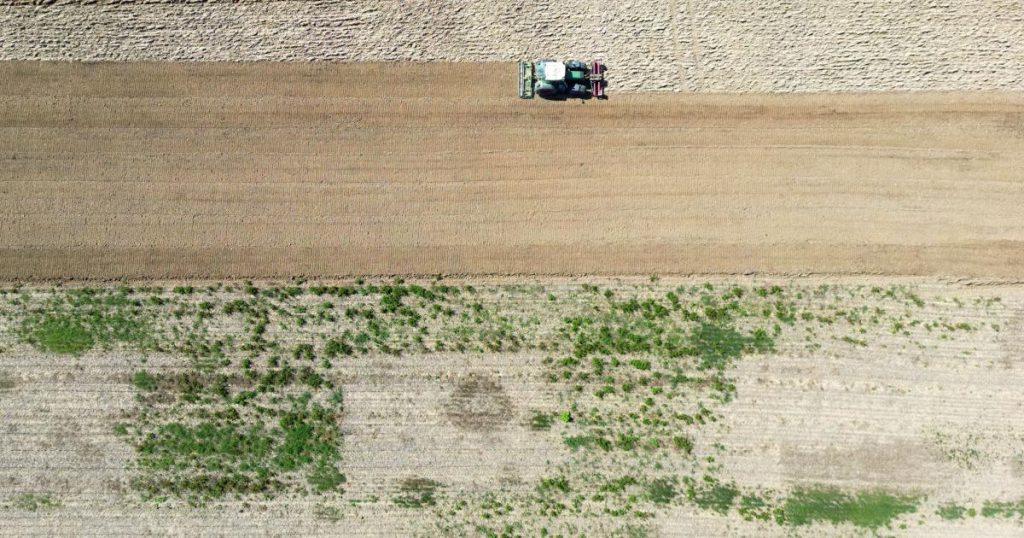Parts of Spain and Portugal have been the driest for over a thousand years. The reason for this is a change in the Azores region of high pressure due to climate change, according to a study published in “Nature Geoscience” on Monday, which warns of dire consequences for wine and olive production.
The high Azores region, an area of high pressure in the Atlantic Ocean, has a significant impact on weather and long-term climatic trends in Western Europe. In summer, the Azores sends hot, dry air to Portugal, Spain, and France. In winter brings humidity and precipitation. According to the study’s authors, winter precipitation is “vital” to the ecological and economic health of the Iberian Peninsula.
Using climate modeling over the past 1,200 years, US researchers have now discovered that the high-pressure system has “dramatically changed” over the past century and “that these changes in the North Atlantic climate are unprecedented over the past millennium”.
Man-made effects of climate change
According to them, the high pressure system began expanding to a larger area about 200 years ago, with the increase in greenhouse gases. In the twentieth century, it expanded further due to global warming. However, the amounts of precipitation have decreased – winters in the western Mediterranean are becoming drier.
Previous studies have not been able to show whether human-made climate change is responsible for changes in the climate in the North Atlantic – and now the authors say they have found the link.
The Azores will become more common in the 21st century due to climate change. By the end of the century, rainfall in the region is expected to fall another 10 to 20 percent, which could have severe consequences for agriculture.
The grape-growing areas of the Iberian Peninsula could shrink by at least a quarter by 2050. The olive yield in southern Spain could decline by 30 percent by 2100, according to previous studies.

“Food practitioner. Bacon guru. Infuriatingly humble zombie enthusiast. Total student.”








More Stories
Kyiv: Russian Kursk offensive halted
US Presidential Election: Former US Government Officials Warn Against Donald Trump's Election
Netherlands wants to leave asylum system